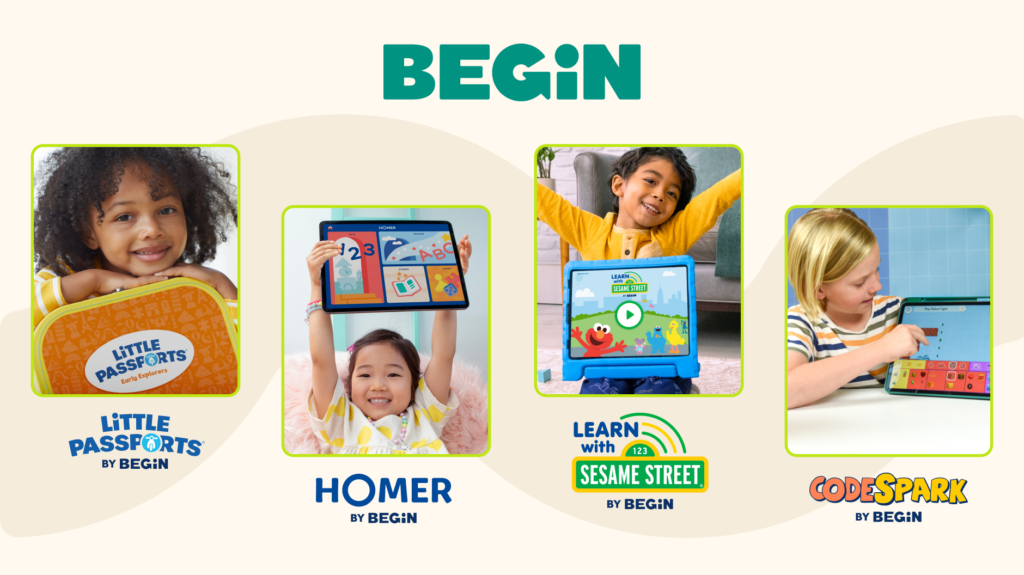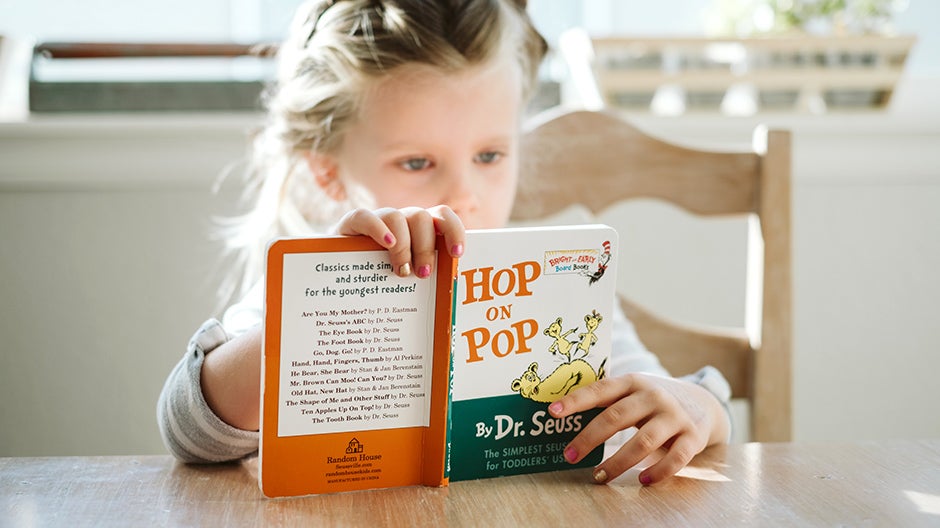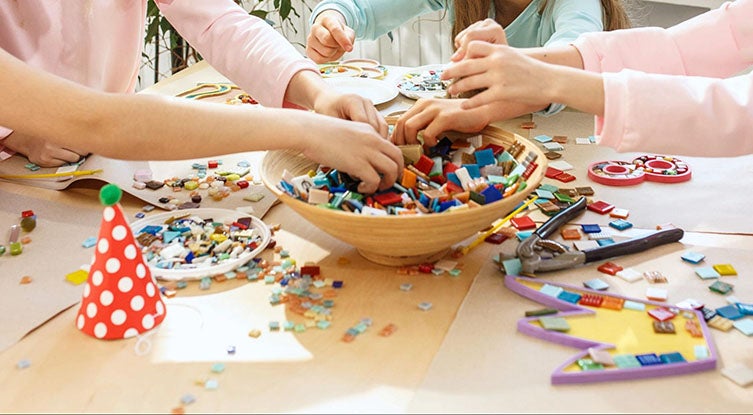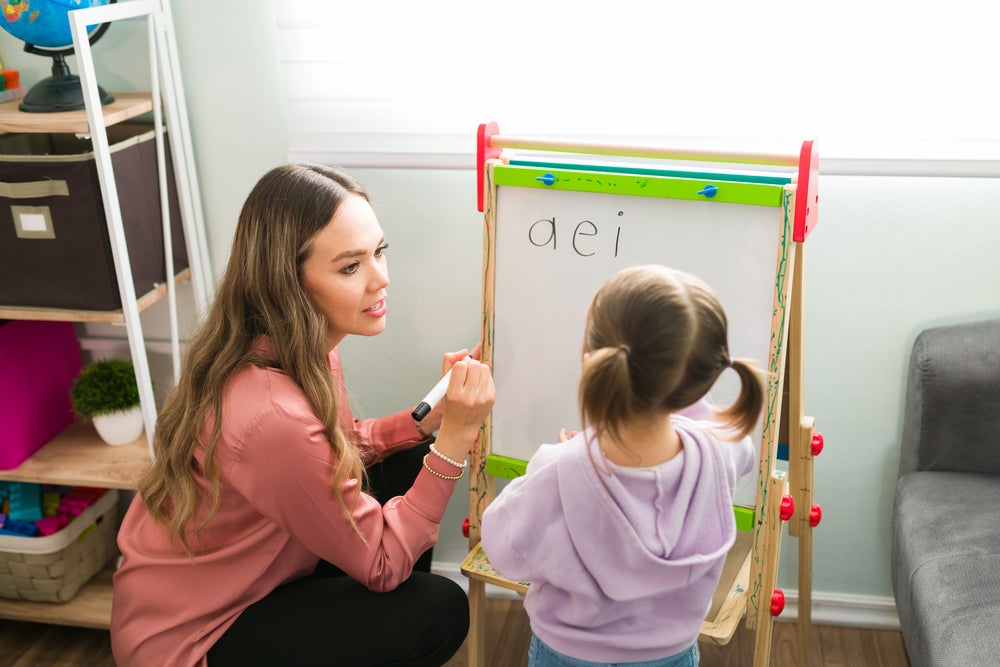Is your child a reluctant reader? They don’t have to stay that way. There are many ways to get kids who don’t enjoy reading to lean into it, and our early learning experts are here to help.
The Short Cut
- Reading is an essential Core Skill, one of the 5 C’s at the heart of the Begin Approach to helping kids thrive in school and life
- Kids with strong Core Skills (including reading and writing) as early learners do better in school down the road
- Non-reading activities like making up stories and listening to audiobooks can help reluctant readers fall in love with stories (and learn important language skills)
What Makes a Reluctant Reader
Kids don’t always love the work of reading, particularly the phonics that are so necessary for early reading success. In the early days of HOMER, our award-winning early learning app for kids, one mom friend told us a sad but familiar tale: Her son, a kindergartner, was putting up a fight about reading.
Once a boy who delighted in words and books and silly rhymes, her son found no joy in sounding out the word P-A-T, no matter how much his mom urged him on. “I just don’t know what to do,” she told us. “I’m worried he’s going to fall behind. Everyone in his class seems to be reading real books, and he won’t even sound out his letters.”
The mom mused wistfully on her son’s nursery, which was strewn with board books, pop-up books, classic books, books on tape. “He absolutely LOVED everything about reading when he was little. I would read PD Eastman’s Go Dog Go over and over again and watch in delight as he waited for his favorite line, which we would read together. I never imagined that reading would be hard for him.”
As experts who have developed early reading pathways for years, we weren’t surprised by her story. It happens all the time. A young child, who delights in books and stories, suddenly finds himself faced with the mechanics of letters and sounds and begins to see reading as a chore.So how can parents support their kids’ love of reading in the early years of formal schooling when reading skills become so important? Here are a few tips if you’re struggling with the same worries that mom described.
How to Help a Reluctant Reader

1. Be Patient
Children learn at their own pace, in their own time. If you sense a child is frustrated by connecting letter sounds and symbols, put the lesson aside and take some time to draw a picture, do a dance, or sing a song. There is no need for one kindergarten-age child to develop skills at the same pace as another. It’s no reflection on the superiority of one parent’s at-home teaching skills that their child is reading “above grade level” in the first year of formal school. Many very successful students don’t learn to read fluently until the end of 2nd grade (some even higher).
2. Respect the Order in Which Foundational Reading Skills Should Be Taught
Learning to read happens in a very specific order, step by step, through explicit, direct instruction. Children don’t just look at a word on a page (like C-A-T) and understand that the word is a set of symbols that correspond with a certain set of sounds, and that when those sounds are pulled apart and sounded out individually, they make a word.
Explicit phonics instruction means that someone (a teacher, a parent, an older sibling, or a digital learn-to-read program) explicitly talks to the child about the job each letter is doing, and about how those letters work together.Trying to go too far, too fast, can turn kids off reading quickly. Make sure your child is not being asked to read words whose individual elements she has never been introduced to.
3. Don’t Put Away the Picture Books!
This is one of our go-to early reading tips. Because learning to read is one of the most difficult skills a child will ever grasp, it can be exhausting. Children are wired to walk and talk, but not to read. It’s hard work! Brain scientists have discovered that the act of learning to read actually changes the wiring of the young brain.
Slow and steady wins the race. Keep the love of reading alive by not pushing a child too hard and allowing her at every chance to choose books to have read aloud to her. What better way to be reminded of the joy that independent reading will ultimately bring than having a beloved parent cuddle up and read that favorite book you almost know by heart?
4. Help Kids Tell Stories Before Learning to Read and Write
Help your child experience the joy of reading and storytelling by honoring their own stories. This can be a really fun way to tap into their Creativity (another of the 5 C’s)!
Come up with a creative story prompt (Once upon a time there was a dragon everyone thought was mean, but he was really a nice dragon…) and ask your child to continue telling the story. Write down what your child says, mistakes and all. Ask your child to illustrate the story. Take time to create an “About the Author” page. Staple your child’s book together.
5. Listen to Audiobooks Together
Platforms like Amazon have hundreds of young adult and children’s books to choose from, and the value of having a trained voice actor reading the stories aloud can bring alive the power of words and expression. In the process of listening, kids learn important lessons about oral expression, how readers convey meaning through emphasis on certain words or long pauses.
There’s a world of difference between listening to an audiobook and watching a movie. The words are doing the work, and your child will see just how good those words can be at painting a picture.
Helping Reluctant Readers with Begin

Motivating a reluctant reader can be fun (for both of you). We hope these tips help encourage your child to embrace the wonderful world of reading.
For more reading help, check out Begin’s award-winning HOMER learning app (proven to raise early reading scores by 74% in just 15 minutes a day!) or our age- and stage-matched learning membership, which helps kids learn the skills that matter most for a happy, well-rounded life.
Take our online quiz to see how we can help your family today!














